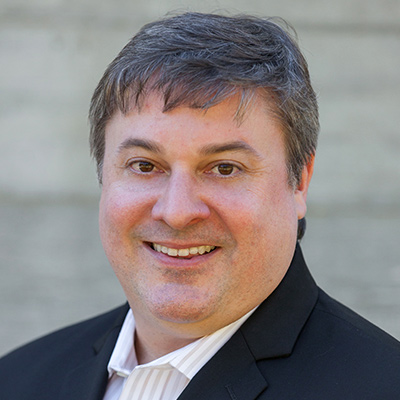I’ve been taking a “magical” pill every day for the past three years…
Players from three of the last four Super Bowl Champions—the New England Patriots, Kansas City Chiefs, and Tampa Bay Buccaneers—also take this pill every day.
Players on the New York Yankees, which have the best record in Major League Baseball this season, recently started taking it too.
You might think I’m talking about some new muscle-building supplement.
|
The most anticipated event in crypto since bitcoin "halved" in 2012 for a 7,976% gain. Now a different crypto is speeding toward its "halving" event which could unleash gains 3X bigger than bitcoin's. Crypto analyst, Stephen McBride says you must act before September 15. |
And while this pill certainly supports muscle health and recovery, it does much more than that.
When I started taking this pill I was suffering from several lingering football and soccer injuries. Basically, everything from my mid-back down to my toes hurt constantly. And my right ankle had been swollen non-stop for more than a decade.
After a couple months taking this pill, the swelling in my ankle disappeared. And I didn’t have as much pain in my back and knees.
I also felt more energetic and generally just better overall.
That’s because this pill helped my cells repair themselves.
This may sound far-fetched but it’s scientifically proven… and it goes much further than that.
In fact, scientific studies have shown that this pill can help with virtually every age-related medical condition. In other words, this is a true anti-aging pill. And it’s being sold by a tiny company set to explode in the coming years as more folks learn about its benefits.
[I recommended this company to my paid-up Project 5X subscribers in my latest issue.
If you’re not a subscriber and would like to join, you can go here.]
-
But today, I’d like to zoom out and look at the world of anti-aging science.
People have been obsessed with the idea of immortality for thousands of years. Not wanting to die is as natural as life itself.
Many of the world’s richest people are investing heavily in anti-aging (or longevity) research. Amazon’s Jeff Bezos, Google’s Larry Page, and Oracle’s Larry Ellison to name a few.
Today, I’ll quickly walk you through the three most promising areas of research. And the pros and cons of each strategy:
-
Anti-aging strategy #1: caloric restriction.
One of the first promising areas of anti-aging research is caloric restriction.
In 1934, scientists at Cornell University found that mice on an abnormally low-calorie diet lived about twice as long as mice who ate as much as they wanted. Scientists found this caloric restriction also lengthens the lives of fruit flies, rats, and even primates.
Why? The hypothesis is that the need for food causes a physiological response to cope with the situation. That toughens them up, promoting health and longevity while they’re deprived.
The problem with caloric restriction is that it’s not pleasant.
So, scientists are trying to develop drugs (called caloric restriction mimetics) that recreate the anti-aging benefits of caloric restriction. No diet changes necessary.
A drug called rapamycin has shown promise in mice by extending their lifespans. And it’s kept them lean and healthy in their later years.
Rapamycin has been used safely in humans for years as an immunosuppressant for kidney transplant patients. But it may not be the best option as a caloric restriction mimetic because it raises the risk of bacterial infections.
Overall, research in this field still has a ways to go… but it’s promising.
-
Anti-aging strategy #2: FoxO.
Molecular biologist Cynthia Kenyon thinks she may have found a key to a long life through her study of tiny worms called C. elegans.
By tweaking just one gene in these worms, she was able to take two-week-old C. elegans and make them appear about half that age.
Kenyon’s modified worms lived twice as long as the normal worms. She said “they’re like 90-year-old people who look 45.”
The gene Kenyon changed is called FoxO. FoxO is a sort of master gene that helps C. elegans live longer by repairing tissue and controlling other genes.
What’s particularly exciting about Kenyon’s work is that the FoxO gene is also found in humans. And a more protective version of FoxO (as in Kenyon’s modified worms) is associated with longer, healthier lives.
Molecular biologist Timothy Donlon found that if you have this more protective version of FoxO, you have a 2X greater chance of living to 100. And if you have two copies of it, you have a 3X greater chance.
So, the gene is indeed associated with “adding life to your years and years to your life.”
If scientists could use gene editing to tweak FoxO in humans, like Kenyon did in her worms, we might have an effective anti-aging tool on our hands.
But this is early-stage research. And there’s still a lot of work to be done.
-
Anti-aging strategy #3: cellular reprogramming.
One of the newest strategies in anti-aging research is cellular reprogramming.
The idea is to reprogram cells to a younger state while still allowing them to keep their specialized functions. And a team of researchers at the Babraham Institute in the UK has recently done just that.
The team managed to turn back the clock 30 years for human skin cells.
Back in 2007, the Noble Prize-winning scientist Shinya Yamanaka showed it was possible to turn normal cells, which have a specific function, into stem cells. Stem calls have the special ability to develop into any type of cell. You can change the normal cells into stem cells by exposing them to four key molecules called Yamanaka factors for about 50 days.
This is what you can think of as “full” cellular reprogramming.
The Babraham team exposed skin cells to Yamanaka factors for just 13 days. This partially reprogrammed the cells. They lost their age-related changes but kept their specific skin cell function.
While this research is still in its early stages, the results so far are extraordinary.
-
An anti-aging strategy that works today…
In the latest issue of Project 5X, I shared the company behind the most promising and functional anti-aging strategy out there.
You see, none of the strategies I’ve mentioned so far are something that can help us today.
The research in the anti-aging space is still early-stage…
This company breaks this mold.
It’s a tiny company that’s developed a patented anti-aging supplement… and it’s already on the market.
As I mentioned, I take this company’s pill every day and it’s worked wonders.
And best of all, this company’s stock is crazy cheap right now.
You can access this stock by signing up for my premium microcap advisory, Project 5X.
For more details on Project 5X, click here.
Regards,
![[signature]](https://images.riskhedge.com/uploads/ChrisWSig.jpg)
Chris Wood
Editor, Project 5X



